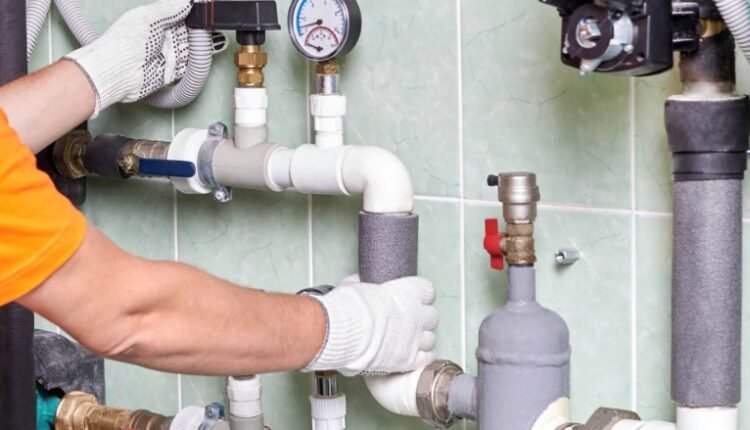Mastering Residential Plumbing Ensuring Efficient Water Systems at Home
Residential plumbing is the backbone of every home, providing essential water supply and drainage solutions. Often taken for granted until something goes wrong, a well-maintained plumbing system ensures comfort, convenience, and safety within our living spaces. In this comprehensive guide, we delve into the intricacies of residential plumbing, exploring its components, maintenance practices, common issues, and solutions.
Understanding Residential Plumbing Systems
- Water Supply System: Exploring the journey of water from the main supply line into the home, including pipes, valves, and pressure regulators.
- Drainage System: Examining the network of pipes responsible for carrying wastewater away from sinks, showers, toilets, and appliances.
- Fixtures and Appliances: Identifying common fixtures and appliances connected to the plumbing system, such as faucets, toilets, dishwashers, and washing machines.
Components of Residential Plumbing
- Pipes: Discussing the various types of pipes used in residential plumbing, including copper, PVC, PEX, and galvanized steel, along with their pros and cons.
- Fittings and Connectors: Explaining the role of fittings and connectors in joining pipes and creating a watertight seal.
- Valves: Highlighting the importance of valves for controlling water flow, including gate valves, ball valves, and check valves.
- Water Heaters: Providing an overview of different types of water heaters commonly found in residential settings, such as tankless, tank-type, and heat pump water heaters.
Maintenance Practices for a Healthy Plumbing System
- Regular Inspections: Stressing the significance of periodic inspections to detect leaks, corrosion, and other potential issues early.
- Preventive Maintenance: Offering tips for preventive maintenance, including cleaning drains, flushing water heaters, and inspecting for signs of water damage.
- Winterization: Discussing the importance of winterizing plumbing systems to prevent frozen pipes and costly damage during cold weather.
- Water Quality Testing: Highlighting the importance of testing water quality to ensure it is safe for consumption and does not damage plumbing components.
Common Residential Plumbing Issues and Solutions
- Leaky Pipes: Providing troubleshooting steps for identifying and fixing common pipe leaks, including loose connections, corrosion, and damaged seals.
- Clogged Drains: Offering DIY solutions and preventive measures for clearing clogged drains caused by hair, soap scum, grease, and foreign objects.
- Low Water Pressure: Explaining the potential causes of low water pressure and solutions such as cleaning aerators, replacing pipes, or installing pressure-boosting systems.
- Water Heater Problems: Addressing common water heater issues like insufficient hot water, strange noises, and leaks, along with troubleshooting steps and when to call a professional.
Sustainable Plumbing Practices for Eco-Friendly Homes
- Water Conservation: Introducing water-saving fixtures and practices to reduce water consumption and lower utility bills.
- Energy Efficiency: Discussing energy-efficient water heating options and strategies for minimizing energy waste in residential plumbing systems.
- Greywater Recycling: Exploring the benefits of greywater recycling systems for reusing wastewater from sinks, showers, and laundry for irrigation or toilet flushing.
- Green Plumbing Materials: Highlighting environmentally friendly plumbing materials such as recycled pipes, low-flow fixtures, and non-toxic sealants.
Hiring Professional Help: When to Call a Plumber
- Complex Repairs: Advising homeowners on when to enlist the help of a licensed plumber for complex repairs involving major pipe replacements, sewer line issues, or water heater installations.
- Emergency Situations: Providing guidance on recognizing plumbing emergencies such as burst pipes, sewage backups, or gas leaks, and the importance of immediate professional intervention.
- Code Compliance: Emphasizing the significance of hiring a plumber familiar with local building codes and regulations for ensuring compliance and safety.
Conclusion
Residential plumbing plays a vital role in maintaining the comfort, functionality, and safety of our homes. By understanding the components of the plumbing system, implementing regular maintenance practices, and adopting sustainable plumbing solutions, homeowners can ensure efficient water management while minimizing the risk of costly repairs and environmental impact. Whether it’s fixing a leaky faucet or upgrading to energy-efficient fixtures, investing in residential plumbing is an investment in the well-being of both your home and the planet.


Comments are closed.